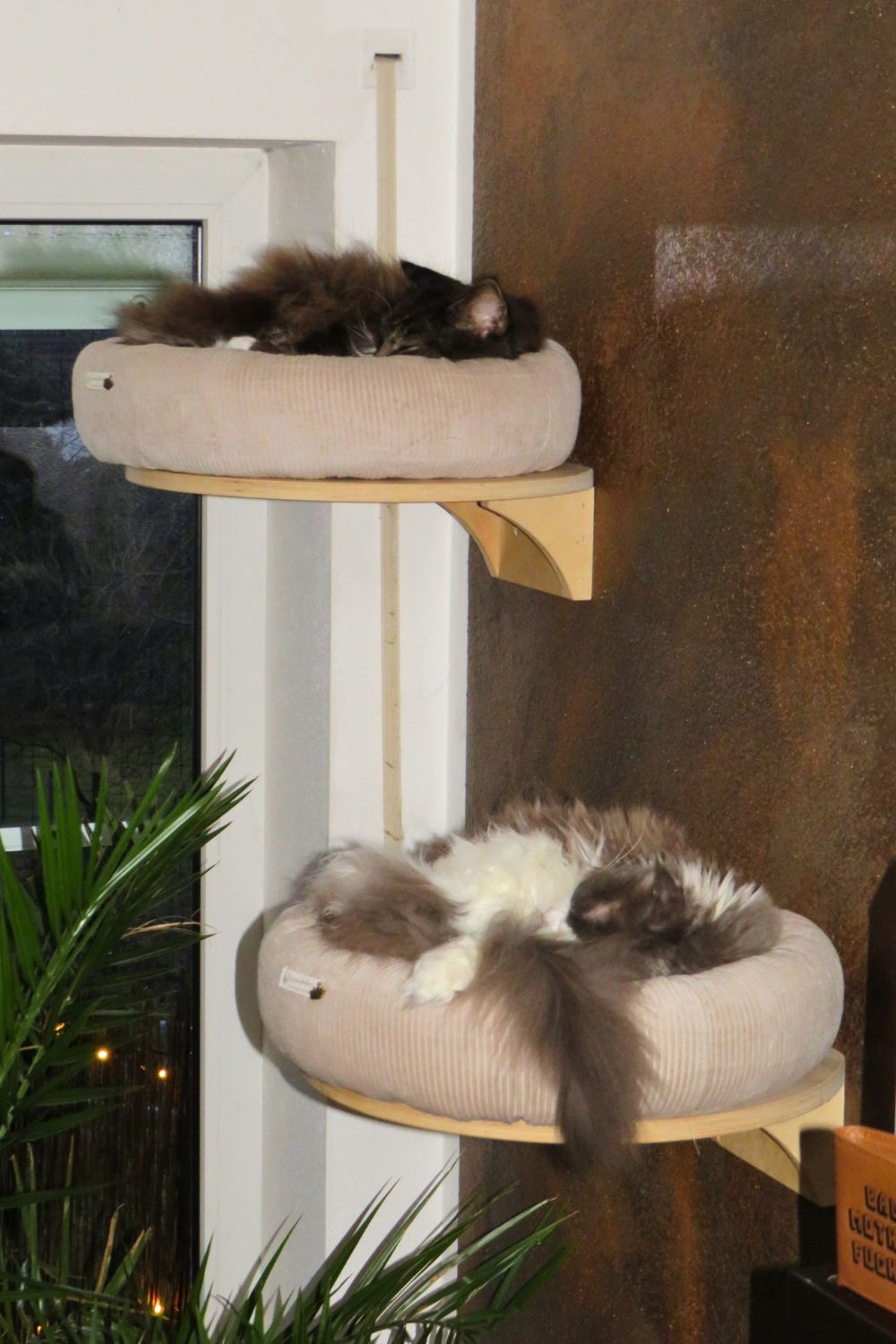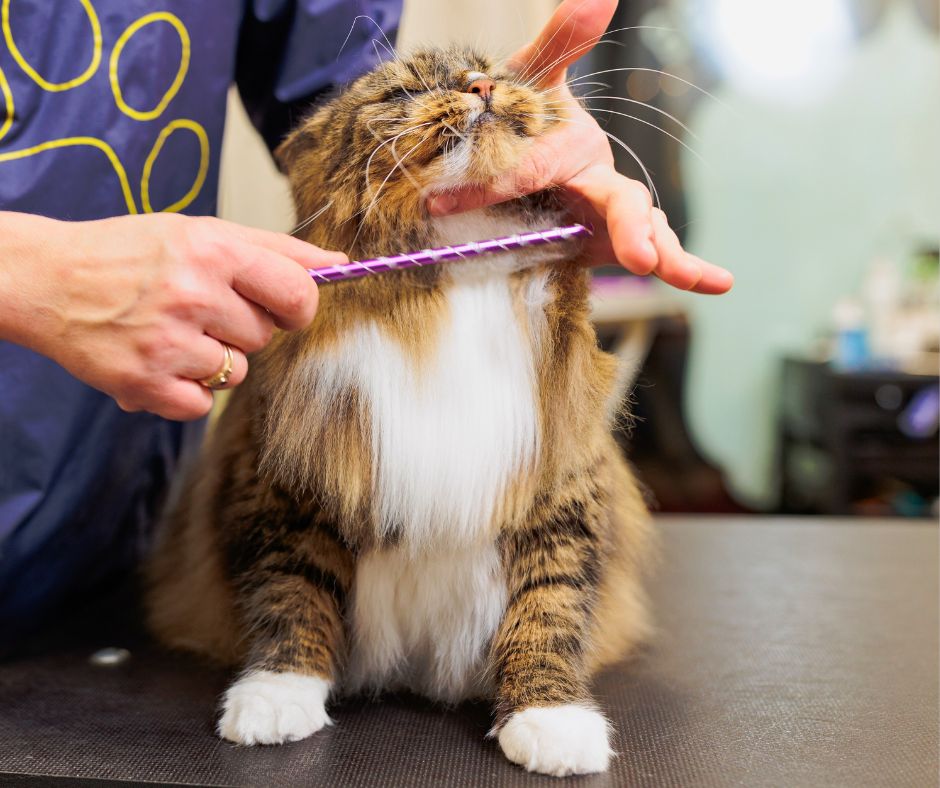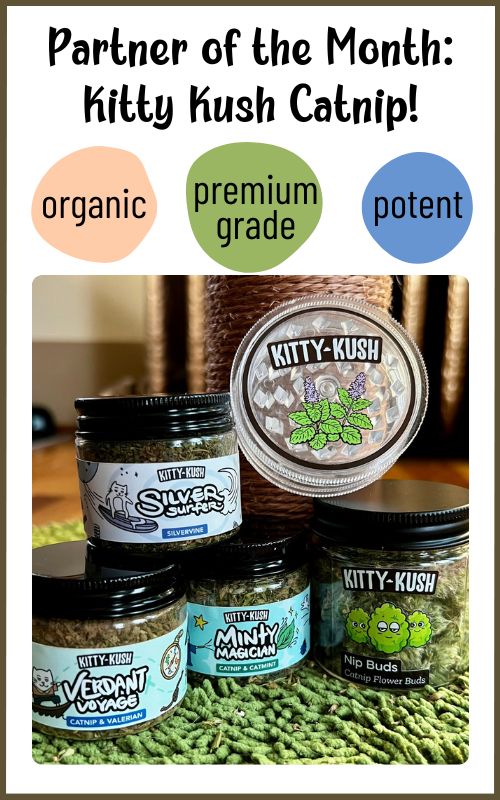- Home
- Maine Coon Cat Health
- Do Maine Coons Need Flea Treatment?
- Do Maine Coons Need Heartworm Medicine?
Do Maine Coons Need Heartworm Medicine?
by Steve
(Pawkeys Islad SC USA)
"Do 11 Year Old Indoor Maine Coons Need Heart Worm Medicine?"
Our 11 year old Maine Coons were given Heart worm medicine pills until the company stopped making the product for cats & we couldn’t find the medicine from another source - companies said there wasn’t enough of a market to continue producing it.
Our only option was to use an externally applied heart worm medicine to which they both had very bad physical reactions. Their vet said continued use of the externally applied medicine would be very dangerous for our cats.

We’ve obtained ivermectin heart worm medicine from a compounding pharmacy but given how badly our cats reacted to the external medicine, we’re very reluctant to use the ivermectin.
We’d like to keep our cats protected - heart worms are fatal for cats, there’s no treatment for it in cats.
What should we do?
Reply:
Hi Steve,
That’s a great question, and I completely understand your concerns - heartworm disease is serious, and it’s frustrating when safe options feel so limited.
While I’m not a vet, I can share some general insights that might help as you navigate this.
Since your Maine Coons are strictly indoor cats, their risk of heartworm infection is lower than for outdoor cats - but it’s not zero.
Mosquitoes can absolutely make their way inside, and unfortunately, it only takes one bite from an infected mosquito to transmit heartworms.
Some studies have found that a notable percentage of heartworm-positive cats were indoor-only, simply because mosquitoes are so good at sneaking into homes.
With that said, whether your cats need heartworm prevention is something only your vet can determine.
Some vets recommend it for all cats, regardless of lifestyle, while others base their recommendations on your region’s mosquito activity and heartworm prevalence.
I completely understand your hesitation with the compounded ivermectin, especially after their bad reactions to the topical medication.
While ivermectin is sometimes used in heartworm preventatives, the formulation and dosage are key, so definitely check with your vet before trying it.
If heartworm prevention isn’t an option due to their sensitivities, your vet might have other suggestions - like reducing mosquito exposure in your home as much as possible.
It’s definitely frustrating when a trusted product is discontinued, and I wish there were more solutions available.
If I come across any new developments or recommendations from veterinary sources, I’ll be sure to update this page. In the meantime, I’d love to hear what your vet suggests!
Thanks for reaching out, and give your Maine Coons some extra head scritches from me.
Best,
Carrie
More About Heartworm Medicine for Cats
Heartworm prevention for cats is a topic that often causes confusion because it's much more commonly associated with dogs.
Unlike in dogs, there’s no approved treatment for heartworms in cats, which is why some veterinarians recommend prevention instead.
But do all cats need it? That depends on a few factors.
How Heartworm is Transmitted
Heartworms are spread by mosquitoes, which pick up microscopic heartworm larvae from infected animals and pass them to the next animal they bite.
While dogs (and wild canids like foxes and coyotes) are the primary hosts, cats can also be infected. However, heartworms behave differently in cats than in dogs.
Cats are not natural hosts, so most larvae don’t survive to adulthood—but even immature worms can cause significant inflammation and respiratory issues.
Do Indoor Cats Need Heartworm Prevention?
The risk of heartworm disease is lower for indoor cats simply because they aren’t exposed to mosquitoes as much as outdoor cats.
That said, mosquitoes do find their way indoors, and studies have shown that many heartworm-positive cats are indoor-only.
Because of this, some vets recommend year-round heartworm prevention, while others may only suggest it in high-risk areas.
Types of Heartworm Prevention for Cats
Most heartworm preventatives for cats are topical treatments applied to the skin once a month, often combined with flea protection.
A few oral options exist, though they are less common. In recent years, some heartworm preventatives have been discontinued, making it harder for cat owners to find a suitable option.
For cats that react badly to topical treatments, compounding pharmacies may offer alternative formulations, but these should always be used under veterinary guidance.
Should You Use It?
If you live in an area with a high mosquito population or year-round warm weather, it’s worth asking your vet if heartworm prevention is necessary for your cat.
Many cat owners, particularly those with indoor-only cats, opt not to use it, and their vets don’t push it as a must-have.
The best approach is to assess the risk based on your location, your cat’s lifestyle, and any health sensitivities they may have.
What About You?
Do you use heartworm prevention for your cat? Has your vet recommended it, or do you feel it’s unnecessary for an indoor cat? We’d love to hear your thoughts and experiences - share them in the comments below!
Write your own page here: Cat Questions.
Recent Articles
-
Cat Pulling Out Fur Q&A's
Apr 03, 25 01:54 PM
Got a Maine Coon who's always grooming? Check out our latest Q&A on what might be causing the behavior, from skin issues to stress, plus tips to help manage hairballs and soothe your cat. -
Why Cats Meow at Night: What It Means & How to Help
Mar 31, 25 04:12 PM
Why do cats meow at night? Learn the common reasons for excessive yowling- hunger, boredom, habit - & get expert tips to help your kitty (and you) sleep better!

-
Dealing With Mats & Matting
Mar 29, 25 04:22 PM
Maine Coon fur matting can be a challenge, even with regular grooming. Their unique coat needs special care. Here are practical tips to help manage mats and tangles.



